“Diet” is one such word that greatly impacts your day-to-day life. People are often cautious about their nutrient intake; thus, they tend to follow a healthy diet that is beneficial for their body. Having a balanced diet can help treat numerous underlying diseases. A decent diet and calorie control measures are crucial for avoiding sickness and living a long and healthy life.
Adding a couple of herbs to your regular diet will help you be fit and help you cure various diseases. It also helps with fluctuations in blood pressure or hypertension. It’s advisable to add a couple of these herbs to your everyday food. Here are a couple of Herbs you should add to your regular diets.
1. Goldenseal Root
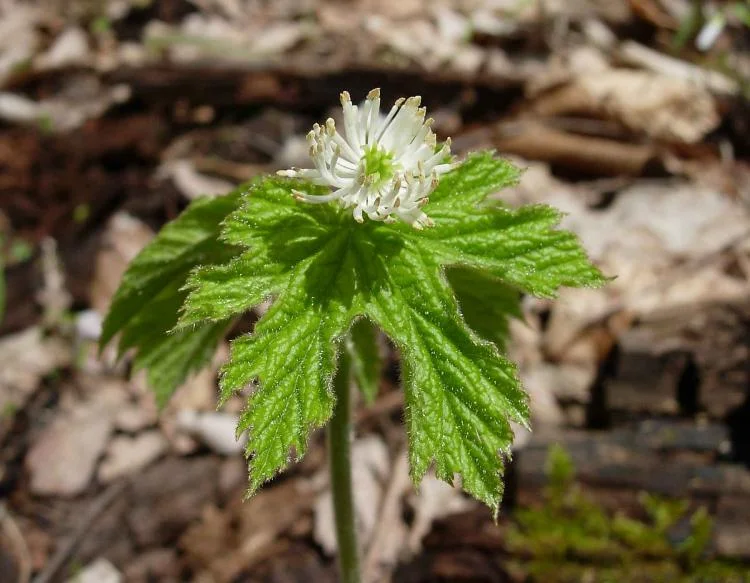
Source: education.mdc.mo.gov
Goldenseal root is a herb that belongs to the buttercup family. It is quite beneficial in treating respiratory tract infections and hay fever. It also helps to deal with colds and coughs. It also helps to treat conditions like constipation and diarrhea. Moreover, it helps to reduce blood pressure and also helps in conditions that cause irregularity in heartbeat.
2. Garlic
Garlic is most renowned for its anti-cancer properties and its ability to slow down other ailments like hypertension and even the common cold. Being one of the most popular therapeutic herbs, it adds a lot of flavor to stews and soups.
Garlic contains a molecule called allicin, which is also responsible for its unique odor. UIt is known for treating numerous diseases. It also works equally as a blood pressure medication.
3. Cinnamon

Source: fromatech.com
Cinnamon is a widely used spice. It has significant antioxidant activity that aids in inflammation reduction and has been demonstrated to decrease cholesterol and triglycerides in the blood. However, cinnamon’s benefits on reduction of blood sugar levels makes it a popular item among people who suffer from hypertension.
Cinnamon lowers blood sugar in various ways, including delaying carbohydrate digestion and boosting insulin sensitivity. Cinnamaldehyde, a chemical found in cinnamon, is responsible for its therapeutic benefits.
4. Rosemary
Rosemary is a plant that has been shown to help reduce blood vessel damage and improve cardiovascular health. The therapeutic herb may help with dyspepsia, memory function, and muscular and joint discomfort when used topically.
Rosmarinic acid is the active element in rosemary, and this chemical has been demonstrated to reduce allergic reactions and congestion in the nose.
5. Turmeric
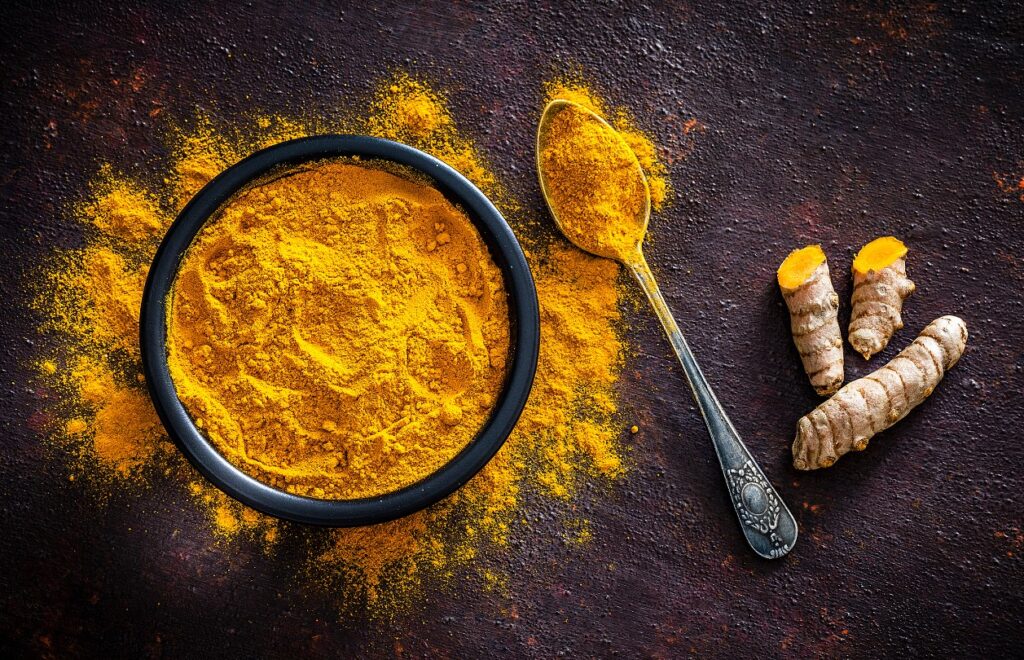
Source: today.com
Curcumin is the most significant chemical found in turmeric, and it has therapeutic effects. Curcumin is a potent antioxidant that aids in the battle against oxidative damage and boosts the body’s natural antioxidant enzymes. Its consumption is important since oxidative damage is considered crucial in delaying the aging process and treats many illnesses.
Curcumin also has anti-inflammatory properties. Research indicates that its efficacy is similar to that of several anti-inflammatory medications. It has been shown to boost brain function, prevent Alzheimer’s disease, lower the risk of heart disease and cancer, and treat arthritis, to mention a few benefits.
6. Parsley
Parsley is abundant in antioxidants, vitamins A and C, and the compound apigenin, which has been proven in multiple studies to help suppress cancer cell proliferation. It has also been demonstrated to have heart-healthy properties, such as lowering blood pressure.
This therapeutic herb may be added to your diet as a chopped garnish. It can also take center stage and give tremendous flavor to meals like this chicken creole recipe, which takes only minutes to prepare.
7. Basil
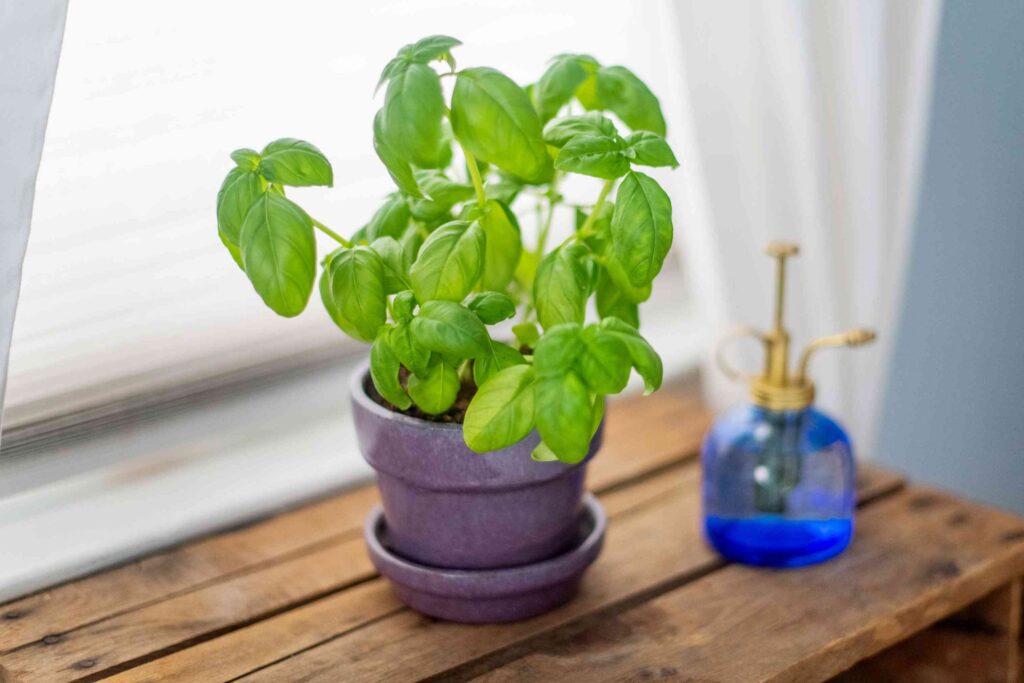
Source: thespruce.com
Basil, which is commonly used in Italian recipes, has cholesterol-lowering properties, is strong in antioxidants, and has antibacterial properties. It also includes the water-soluble flavonoids rientin and vicenary, which may protect white blood cells. Furthermore, basil’s potent antioxidants have been proved to aid in the battle against free radical damage. Basil also includes phytochemicals, which have been shown to help prevent cancer.
8. Bay Leaves
Bay leaves are used in many stews for medical reasons. These leaves contain an oil with the active component cineole, which helps ease discomfort caused by sinusitis. Studies demonstrate that breathing the essential oil helps reduce inflammation and fluid accumulation in the sinuses.
Bay leaves may also help prevent heart disease, help in the treatment of arthritis, and the maintenance of the immune system. These are flavorful herbs that may be used in soups, and sauces as well. In a simple pot roast recipe, bay leaves are used to add flavor. Remember to take them out before serving; they’re not meant to be eaten whole.
9. Oregano
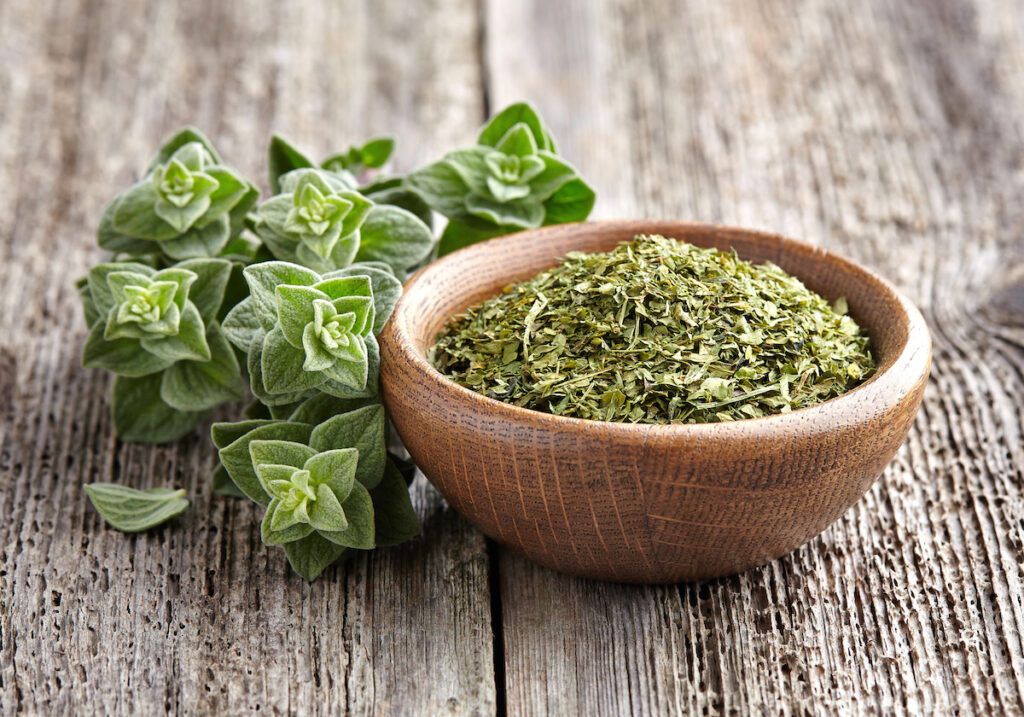
Source: masterclass.com
It helps improve heart health and combat infections. Vitamins K and E, calcium, iron, manganese, and fiber are found in these small yet powerful leaves. Oregano is rich in antioxidants.
One tablespoon of fresh oregano contains the same amount of antioxidants as a medium apple, and oregano has 20 times the antioxidant strength of many other herbs and four times the antioxidant power of blueberries, one of the greatest sources of antioxidants available.
Antioxidants protect cells from free radical damage, reducing the risk of heart disease, stroke, and cancer. Oregano also contains phytonutrients that helps to fight against infections.
10. Peppermint
It improves mood and concentration, relieves IBS symptoms, and reduces nausea.
According to studies, the minty scent might help raise your mood and clear your mind, and its smell may also help to calm an upset stomach. After surgery, people who inhaled peppermint spirits reported significantly less nausea than those who took a placebo or anti-nausea medication.
11. Cardamom
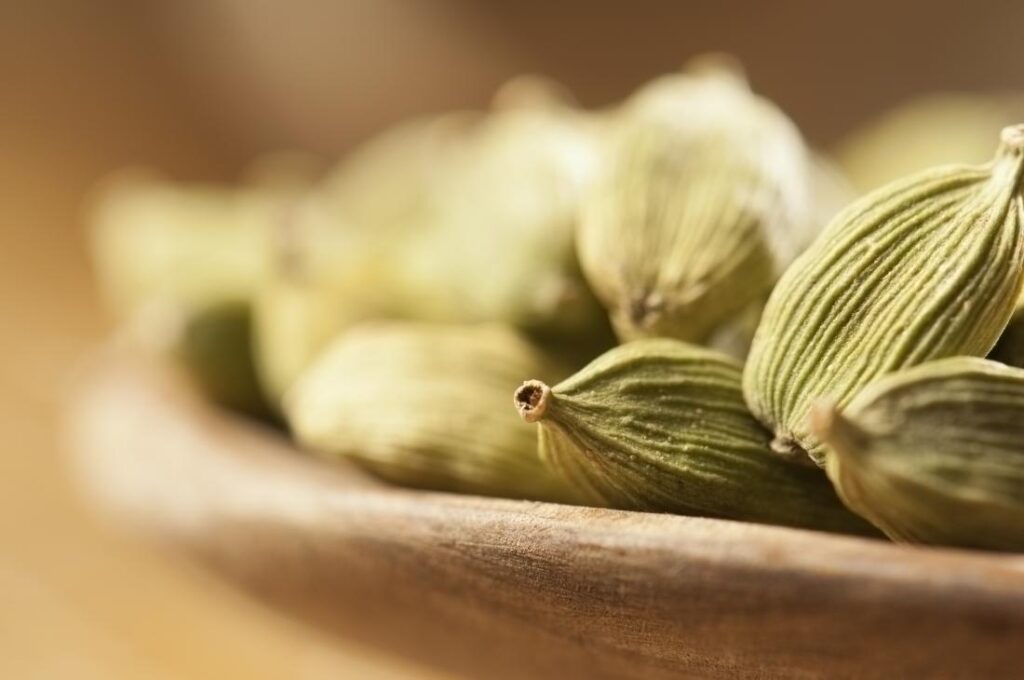
Source: medicalnewstoday.com
Cardamom is another spice with a long list of possible health advantages.
The spice’s volatile oils, fixed oils, phenolic acids, and sterols are chiefly responsible for the spice’s therapeutic properties. Cardamom seeds contain volatile oils that are analgesic, anti-inflammatory, antibacterial, and antispasmodic. It also helps in the treatment of obesity and excessive cholesterol.
Final Word
These are a couple of herbs you must add to your regular diet seeing their health benefits. They help cure various diseases, but they also add a mouth-watering taste to your meals. Try making multiple recipes with these herbs and enjoy the dual benefits.






